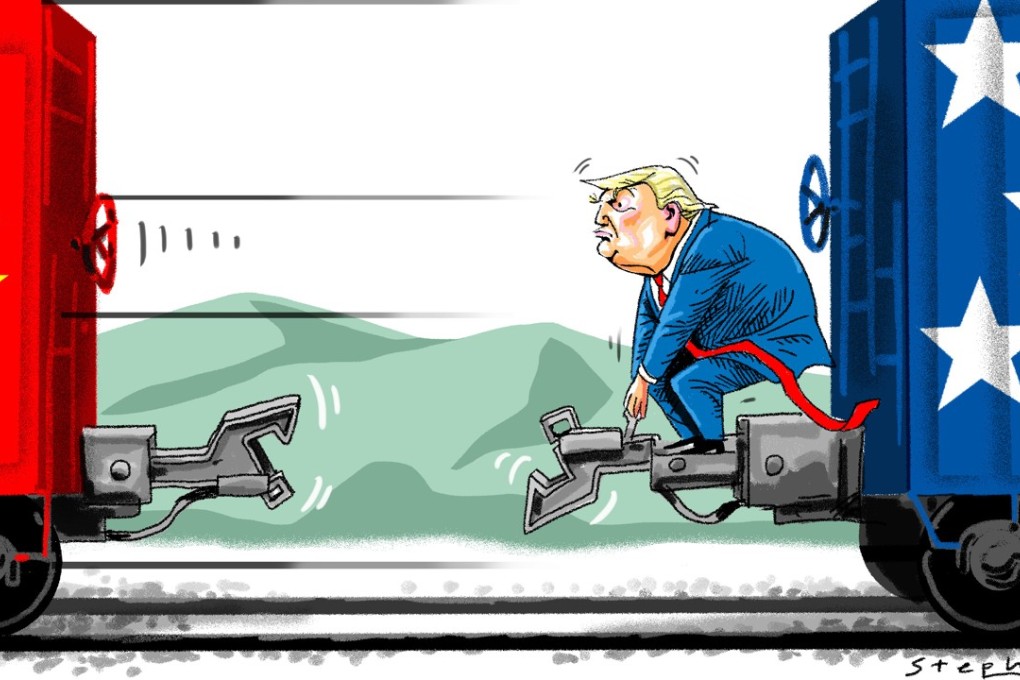Opinion | Why the US should not simply decouple from China without building new partnerships
- Richard McGregor and Hervé Lemahieu say the US’ trade war with China is also a conflict with the rest of Asia due to the nature of global supply chains
- While there is a need for the US to stand against China’s trade practices, it cannot go it alone and must consider rejoining the Trans-Pacific Partnership

Washington’s new foreign policy buzzword, “decoupling”, has a rather bland ring, especially given the momentous phenomenon it describes – of the world’s two biggest economies, the United States and China, splitting apart. For the White House, the phrase is shorthand for the administration’s commitment, through taxes, tariffs and other punitive measures, to disentangle its companies and their technologies from China’s supply chains.
But without a broader American economic strategy for the region, it’s hard to see how a decoupling between the two countries will work out for the US and friendly countries in Asia. Far from bringing business out of China, America might ensure that global supply chains remain anchored there after all.
Asia is home to the most important global supply chains – from electronics to textiles, to IT to cars – distributed across a vast range of countries. Due to the nature of these cross-border links, and China’s central role within them, a trade war with Beijing means a trade war with Asia.
The very model of Factory Asia – which has allowed developing countries to master the global age, starting with Japan in the 1950s – may be heading for extinction. This alone makes many countries and businesses nervous.

